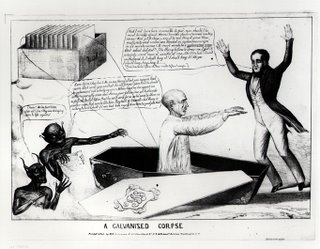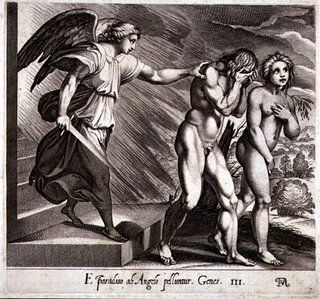WELL another day, another nap. I seem to be sleeping my life away. Productivity, in any real sense of the word, has gone away. But at least, for a while, I spent a somewhat productive few hours reading. Got some exercise in also. Half-an-hour of walking. But my life seems to be a torment of low energy or only median energy. Real life has descended into a dream-state. I'm fully awake, but life is just a series of images, some more meaningful than others. A hand has descended into the labyrinth of my mind, pulling at neuron and synapse with the grip of fatigue and boredom.

This hand is the dream. The dream of illness on our shoulder. The dream of survival. The dream of dying. Like Dali's Dream places a Hand of Man's Shoulder(1936). The world of dream and 'reality' become blurred. The wall becomes cracked, plaster crumbling beneath the heat of illness. The world becomes a dream, casting red shadows onto a dry land where the arid hopes come to rest until our fate is decided. Our faces, like those of the painting, become obscured. Only the visions of day and the dream of night become reality. We are lost in a world where hope is merely hope for survival all other hope is subsumed, because all hope lays in the future, and that is uncertain - even in the short term. The dry wind of illness blows over us, and we smile and weep at the same time.
Our shadows are cast in the dry land where the yellow light casts shadows of blood over our realities. Both those of waking and those of sleep. The yellow light dry and monotonous as a life of pain. The yellow light that obscures the water shining in the morning. The yellow fogs that are dry as rice paper. We hate this light, for it is hot, arid and dry, and seems to suck the energy from our bodies. It becomes ordinary. And this is the saddest part, living our yellow-tinged lives, we find it hard to see through the mists and remember the clarity of health. The only thing to do is fight. "I challenge the stale yellow light to a duel," writes Jeanette Winterson (1996, p. 63). We fight as adverseries, those who are mutually insulted. Those whose honour is at stake. The honour of living and enjoying this planet. It is a daily fight. No intermission, no referees, no rules. Just a bloody fight fought in the yellow light of pain and fatigue.
The line of sleep and wake blurred, where are we? In the world of instinct, of magic, of illness, and hoped-for survival. Our lives are mired in survival. Our lives are blood-ridden and pain-soaked, but we hope. We dream. We wake. Even if we can't tell the difference. In the land of instinct only the lifting of lids tell us we wake. "And," Writes John Keats, "he's awake who thinks himself asleep." (Keats 1818). Life becomes a dream, where everything sems unreal, yet too real. meaningless but cherished. Everything fits into its opposite. Symmetry is never as common as when we are sick. Our eyes open and yet we dream our days. The illness that eats away at us both awakens and makes drowsy. We awake to mortality and sleep away our lives.
But the strange thing is that we come, in some ways, to embrace our illnesses. It is our constant companion. And like a lover, its spurning tears a hole in us, for we fear its return and loathe its leaving, for it may return. Auguste Klimt shows us in our embrace. The woman almost asleep beneath the faceless man. We are in its embrace and should he leave we awake in confusion, the complex colours and shades of our blanket strewn about our naked bodies. The blanket comforts us and is where we are wrapt together. Hoping. Dreaming. Loving. Hating. All of these things. Its complexity, is the complexity of any relationship and particulaly the relationship of oneself to one's body. And like the lamb in Rilke's Sonnets, the noise is all we have. The noise of our thoughts and fears.
"to us only noise is offered.
And out of a more quiet instinct
The lamb begs for its bell."
We, as we grow healthy, beg for the bell. The noise of crisis versus the silence of health. It is an addiction, cancer. For it involves survival and fear and love and hate and sorrow. All we are is rolled into a mass of poisoned cells. "My spectre," writes William Blake, "around me night & day/Like a wild beast guards my way." even death and fear of death and suffering can be ordinary and so the spectre and its wild beast of ill-health guard our passages. And we fear its leaving. We do not know how to be alone. Without disease.
This may seem morbid, but it is true. We fear health as we fear loneliness, because they show us our independence as well as our strength. We want to be children. But are afraid of our vulnerability. We remember the pain and the anguish and the embrace of the illness and the fight. If it leaves it may return. Worse. We acknowledge what we know. We embrace it. For all else is shadowed in fear.
References:
Blake, William. "The Little Girl Found" in Songs of Innocence and Experience.
Keats, John. "What the Thrush said..." 1818.
Rilke, Rainer M. Sonnets to Orpheus Second Series XVI. Duino Elegies and The Sonnets to Orpheus. Translated by A. Paulin, Jr. Houghton-Mifflin Co. Boston. 1977.
Winterson, Jeanette. Art and Lies. Vintage Books, New York. 1996.







